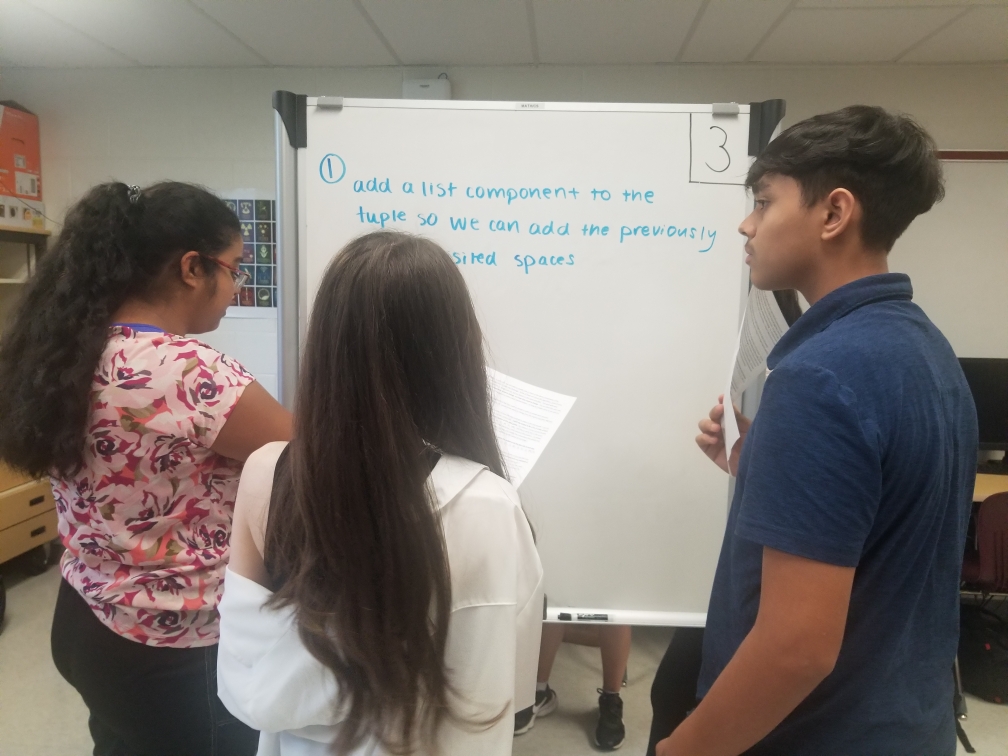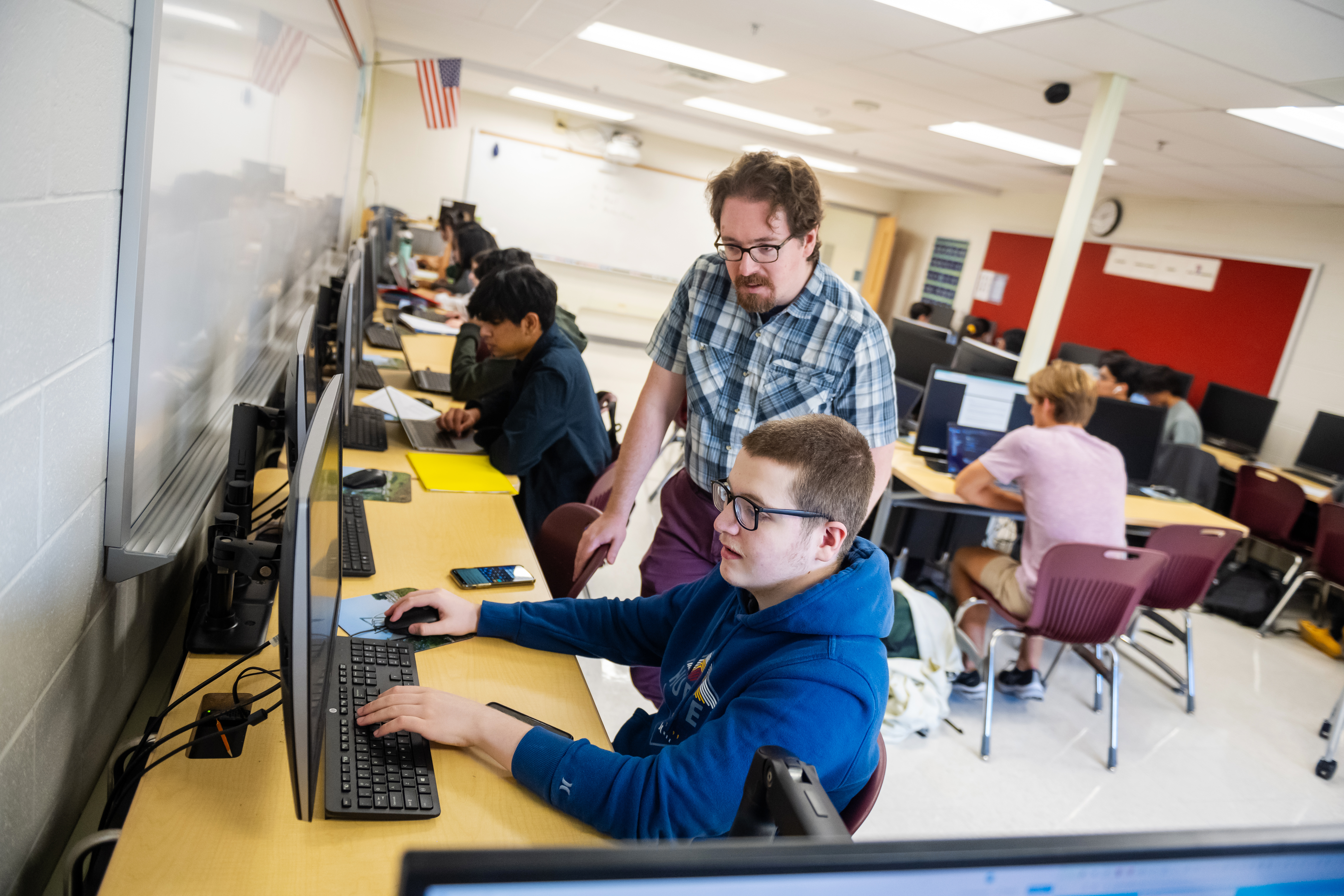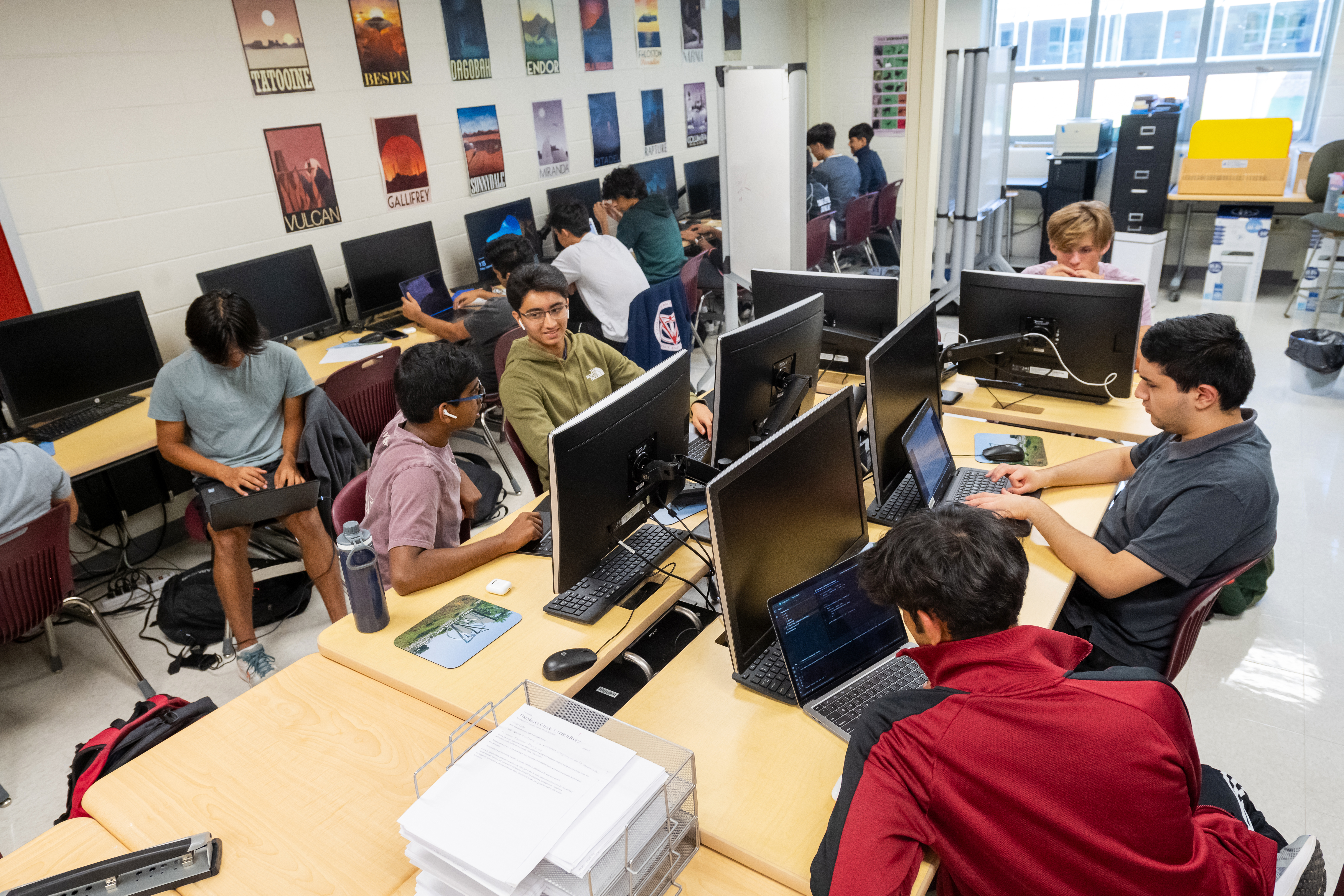Thinking Like A Computer
Thirty students at Thomas Jefferson High School for Science and Technology are scanning a Chutes and Ladders game board, with just fifteen seconds to determine the smallest possible number of moves to get from the starting square to the end of the game.
Hands fly into the air and guesses wildly range from four to 17 moves – one student had come up with the correct answer: 7, it turns out, is the smallest number of possible moves needed to make it from the start to the finish.
Senior Anika Saraf had gotten it right.
“To be totally honest that was just a guess,” Anika said. “There is no way a person could solve this problem that quickly, you have to search through at least 200 different possible ways to move through that game board – which is impossible for a human in 15 seconds. But a computer can do it through code in probably .00015 seconds.”
That’s exactly the lesson her instructor Malcolm Eckel wanted his students to take away. There is a surefire way to come up with a solution: create an algorithm through coding, a kind of artificial intelligence, that could do the computations for them.
Eckel is teaching a course in artificial intelligence, an elective at TJHSST that is available to students after they complete AP Computer Science.

“This is a flexibility challenge,” Eckel said of the Chutes and Ladders exercise. “Up to this point, these students have used existing algorithms to solve problems. We want our students to start thinking about how they can take these existing algorithms and alter them to get new information.”
Artificial Intelligence, or AI, has garnered a bit of a bad rap for its impact on education, with programs like ChatGPT getting blamed for making it easier for students to cheat.
“We are already at a point in this class where ChatGPT would not be able to come up with the answers we need,” Eckel said.
At TJHSST, Eckel and his students alike disagree with the assumption that AI will have a negative impact on U.S. education.
“The way I see it, AI is undoubtedly the future, and relying solely on our own abilities will soon seem limiting in a world where AI can help us achieve the impossible,” says Sophia Huang, a junior at TJHSST in Eckel’s class. She draws the line, of course, at students using AI to “neglect” learning or cheat.
“AI should empower learning, not shortcut it,” Huang said.
Eckel and his TJHSST colleague Peter Gabor, who teaches an advanced artificial intelligence class at TJ on machine learning, said they want their students to learn how to write programs of their own that would be considered AI, such as tools that could be used to recognize handwriting, solve Sudoku puzzles or even simplify classroom life by doing something like having a camera take attendance every day by recognizing images of student faces, so time isn’t wasted going through the class roster.

“There’s no substitute for effective, original thought in any field and AI isn’t going to replace that any more than the calculator did,” Eckel said, noting there are actually ways creative educators can harness AI to fight against cheating. “I’ve seen assignments where professors/teachers tell students to generate the ChatGPT essay and turn it in alongside their own, as a way of proving their insights/perspectives are unique!”
The AI program at TJHSST is one example of FCPS’s effort to meet its strategic plan goals, specifically Goal #5, Leading for Tomorrow’s Innovation, which seeks to push students to innovate and prepare for the future.

Anika, the student who correctly guessed the answer to the Chutes and Ladders problem, sees a role for high school work in AI in her own future, which she thinks might involve a major or career in finance.
“AI and algorithms can be used in finance to automate the actual math process of strategies used to track price to earnings ratios, debt to equity – all of this can be automated through AI so there is no crunching numbers in a spreadsheet,” Anika says.
Like her classmate Sophia, she’s hopeful about what AI can bring to high school education.
ChatGPT, and other forms of AI, can be used to support research, suggest paper topics or different perspectives, and answer questions like “How do I….” or “Teach me to…,” Anika says.
“If you’re using it to do your homework, write an essay, solve a math problem, you will fail your test,” she cautions. “But, whenever there is a new disruptive technology, you have to learn how to ethically use it to get a leg up.”
“You can program a computer to think for you, but you still need to have the problem solving skills to come up with that program. That’s what I want to take away from this class.”
Read more about FCPS Strategic Plan goals